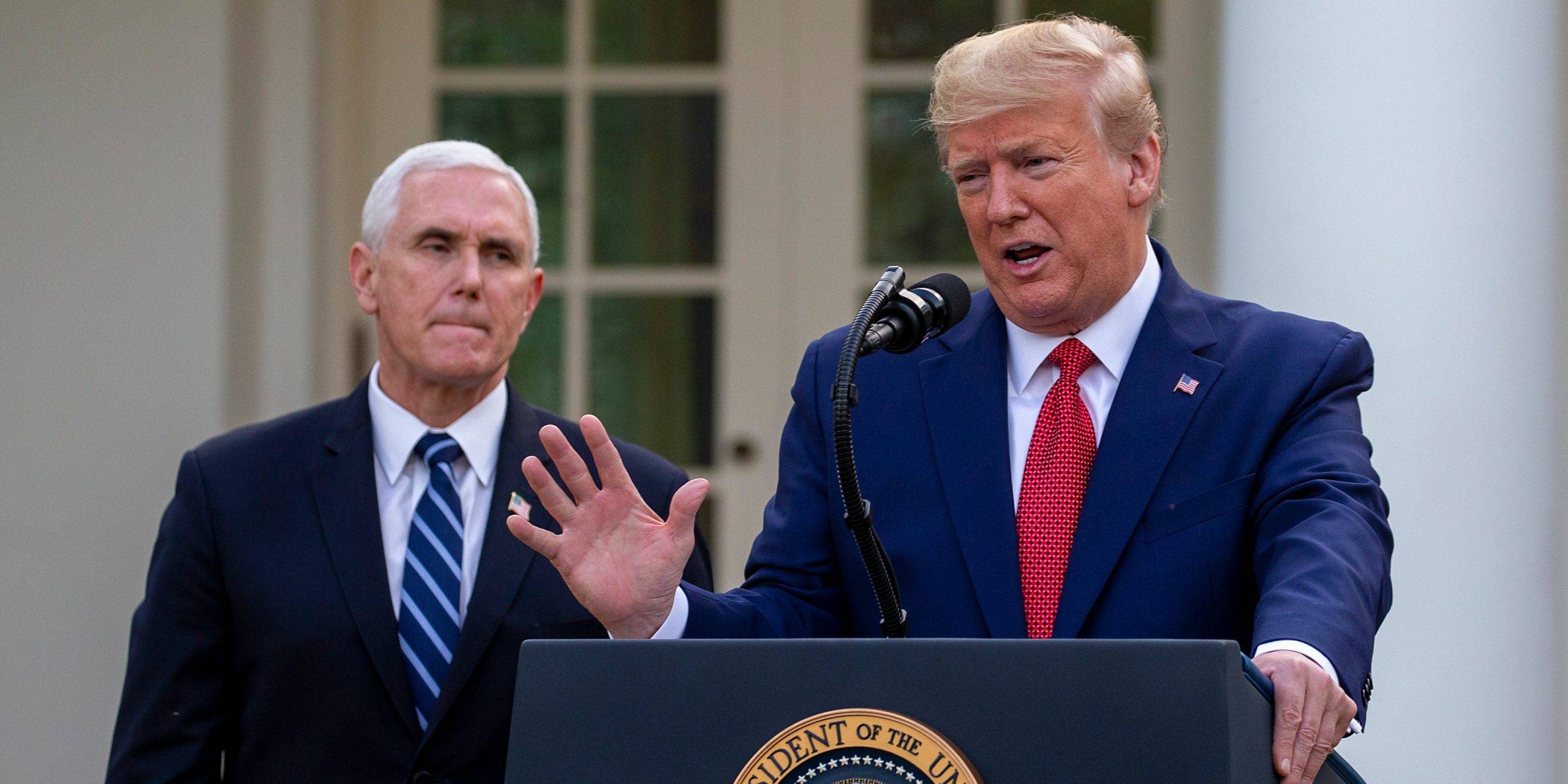
Tasos Katopodis/Getty Images
- Trump continues to say that former VP Mike Pence should have tried to overturn the 2020 election.
- Trump falsely told Fox News' Lisa Boothe that Pence could have "sent it back" on January 6.
- Pence's role that day was limited to overseeing the electoral vote-counting process.
- See more stories on Insider's business page.
Former President Donald Trump incorrectly claimed that former Vice President Mike Pence should have tried to summarily reject entire states' slates of Electoral College votes at the January 6 joint session of Congress in a podcast interview with Fox News' Lisa Boothe.
In the interview, Trump doubled down on false assertions that the 2020 election was stolen from him and that entire states' election results were invalid because election rule changes were made by courts and other elected officials, not state legislatures.
"It's too bad Mike Pence didn't go back, because you would have had a much different result had Mike Pence gone – he could have said, 'I'm sorry, but this was not approved by the state legislature, and according to the Constitution, it had to be,'" Trump said, falsely tacking on: "Mike Pence could have sent it back, he could have said, 'I'm sorry, but you have to check this out.'"
In the weeks leading up to the joint session of Congress to count electoral votes on January 6, Trump used his now-suspended Twitter account to publicly pressure Pence into subverting the election results.
Pence, however, did not have the power to unilaterally reject entire states' electoral college vote certificates or to "send back" the certificates in the hopes that state legislatures would override a vote from the electors of their states.
Under the parameters of the Electoral Count Act of 1887, Pence's role, as Senate president, was simply to oversee the counting of certificates and to field objections to the counting of states slates' of electoral votes raised by members of Congress.
Both chambers of Congress ended up debating and ultimately rejecting two objections to counting electoral votes from Arizona and Georgia. The process was interrupted by a deadly insurrection on the Capitol that was waged by pro-Trump rioters driven to overtake the building based on the lie that Congress, including Pence, were stealing a rightfully-won election from Trump.
Also, Congress was not certifying the election, but simply counting certificates of the presidential results submitted by states.
The Electoral Count Act only allows for members of Congress to object to electoral slates if the election is not certified by the deadline, if the electors who voted were not those selected by the voters of the state, or if the electors voted illegally, like after being bribed, the Campaign Legal Center's senior director for trial litigation Adav Noti told Insider in January.
"But those are extremely narrow: either the wrong people had to have voted, or they had to have voted illegally. None of what got raised in this election falls into either of those categories," Noti said.
Trump also told Boothe that the Supreme Court, except for Justices Thomas and Alito," should be ashamed of themselves" for declining to take up election-related cases out of Pennsylvania and Texas.
"The Supreme Court didn't want to hear it. They didn't rule on the facts, they ruled on things like no standing, process, they should be ashamed of themselves," Trump said.
